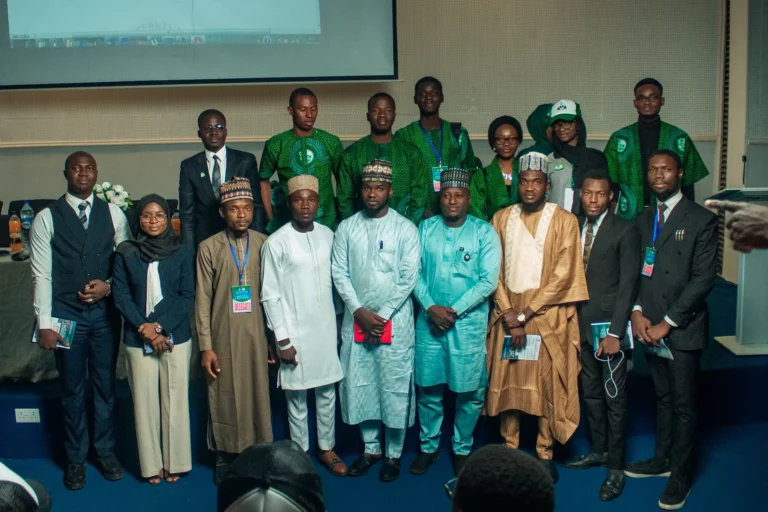Nigeria’s Proposed Foreign Exchange and Tax Reforms: Navigating Tricky Transitions

By Ebere Frankline Chisom[1]
Introduction
Nigeria’s foreign exchange management and tax policies have long suffered from myriad challenges in regulation, implementation, and enforcement. However, catalysed by the Tinubu administration’s ambitious economic agenda, Nigeria now stands at the cusp of another major overhaul of its foreign exchange and tax frameworks. The slate of proposals by the Presidential Committee on Fiscal Policy and Tax Reforms, recently approved by President Bola Ahmed Tinubu, aims to expand the tax base, raise income tax thresholds, liberalize access to foreign exchange, and curb black market activities.
While these reforms have generated optimism about boosting Africa’s largest economy, immense obstacles remain in translating the plans into realities on the ground. The outcome will determine Nigeria’s capacity to accelerate growth, attract investment, and generate opportunities for its burgeoning population. Yet the path forward is strewn with roadblocks. This article examines the headwinds facing Nigeria as it attempts to overhaul two linchpins of its economic framework – taxation and foreign exchange management. We analyse the interests, incentives and capabilities required to transform ambitious blueprints into tangible outcomes.
Overcoming Entrenched Interests Against Reform
Central to the agenda is streamlining the existing labyrinth of taxes, levies and tariffs into a simplified regime to boost revenue. However, this convoluted fiscal framework has metastasized over decades into a maze of statutes, subsidiaries, incentives and decrees sprawling across multiple tiers of government. Amending this tangled legacy necessitates mobilizing an implausible array of legislative stakeholders. On one end, lawmakers habituated to exploiting opaque revenue allocations for political patronage are likely to fiercely resist transparency measures threatening their advantage. Meanwhile, state governments zealously protective of their constitutional fiscal powers will oppose harmonization as unacceptable overreach. Even wielding sizeable parliamentary majorities, the administration faces the monumental challenge of overcoming resistance to overhaul ingrained fiscal arrangements.
Equally fundamental are proposed reforms to foreign exchange policies that have long been the preserve of the Central Bank of Nigeria (CBN) diktat. Expanding access to dollars by liberalizing currency markets implies dismantling the complex architecture of rationing and exchange rate strata zealously guarded by the CBN. However, the CBN regards such discretion as essential to managing volatility and preserving reserves. It will likely leverage its tremendous influence over the legislative process, and ally banks, to stonewall threats to its powers. Reducing arbitrary CBN control over allocating forex will also be opposed by special interests that have profited immensely from the cloak of opacity, albeit unofficially.
Securing necessary legislative realignment represents only half the battle. Equally challenging is mustering the capabilities within key institutions to implement sophisticated new frameworks transparently once adopted. From customs administrations to tax authorities, chronic gaps in skills, infrastructure and insulation from political interference hobble the performance of Nigeria’s bureaucratic machinery. And the risks of unintended consequences from radical reforms cannot be dismissed given Nigeria’s economic complexity.
Managing Risks of Unintended Consequences from Rapid Changes
A key focus of the reforms is removing obstacles to boosting non-oil exports. Steps like removing export proceeds repatriation restrictions and improving access to foreign exchange for exporters could certainly help. However, exchange rate reforms that incorporate BDCs into the official forex market need careful implementation to avoid exchange rate volatility or further opportunities for arbitrage that undermine the naira. There are also risks that expanding export incentives could enable abuses and corruption without sufficient transparency and oversight of programs like Export Expansion Grants.
Proposed tax reforms like raising the personal income tax threshold, reviewing tariffs, and introducing tax breaks aim to spur business investment and job creation. However, efforts to expand the tax base and increase tax revenue could place sudden excessive burdens on businesses and individuals not previously paying taxes. A rushed rollout risks non-compliance, lawsuits and implementation failures if reforms are not phased in gradually with ample transition periods. Expanding the use of technology for tax filing and payment could also digitally exclude parts of the population without access to mobile phones or the Internet.
Several reforms aim to improve conditions for the poor, like removing multiple taxes, raising tax-free allowances and facilitating conditional cash transfers via mobile phones. But intended benefits may not materialize if alternative taxes replace abolished ones or if mobile-based cash transfers exclude the most vulnerable populations without digital access. There are also risks that exempting low-income earners from taxes could discourage their participation in the formal economy.
The proposed ban on black market FX transactions could drive them further underground while reforms to address FX shortages remain at an early stage. Imposing excise taxes on black market dealings could incentivize bribery and extortion. The reforms need to be accompanied by broader efforts to improve transparency in FX management and allocations.
Building Consensus and Support to Translate Reforms into Reality
Navigating the political economy minefield to translate plans into practice will require considerable political capital and policy craftsmanship. In this regard, particular attention should yet be directed at the sequencing of the reforms starting with the quick wins. This should ensure momentum is built before tackling more contentious issues. For example, raising income tax thresholds and improving tax filing technology must be seen to have achieved early revenue gains and built public support.
In the same light, consensus-building forums should be used to defuse zero-sum standoffs between federal and state authorities over fiscal reforms. Creative compromises like revenue-sharing arrangements may secure win-win bargains. Additionally, reform champions within government agencies resistant to change could be enlisted to spearhead implementation efforts from within institutions. Their insider leverage would be invaluable in overcoming bureaucratic inertia while externally, public messaging campaigns, showcasing benefits to citizens and businesses, can also generate momentum for reforms. Townhall events and focus groups engaging diverse stakeholders could pinpoint ways to refine proposals and identify unintended consequences early when easier to address.
Finally, anti-corruption and transparency safeguards within new frameworks, like standardized FX allocation procedures and tax enforcement disclosures, are imperative. Credible monitoring by civil society and media can further deter abuses.
Conclusion: Seizing a Rare Window of Opportunity for Decisive Change
Nigeria’s history is one of unrealized economic potential and reform efforts gone awry. With its latest policy proposals, the country once again finds itself at a crossroads. Charting a different course will require defusing resistance from those wedded to the status quo. It will mean strengthening institutions marked by limitations. And it will involve persuading citizens sceptical of promised change based on past disappointments.
Yet the alternative of succumbing to inertia and powerful anti-reform interests condemns Nigeria to continuing its cycle of underperformance and instability. With savvy leadership, sophisticated policy design, and inclusive implementation that builds broad support, the nation can propel historic economic reforms that harness its tremendous promise. The path forward will undoubtedly be tricky and convoluted. But Nigeria now has a rare window of opportunity to break decisively with the past.
[1] The author is a law student at Ahmadu Bello University, Zaria and a member of the Scientific Network on Eviction and Housing Rights (SNEHR), EVICT, University of Groningen, the Netherlands. He can be reached via franklinehisom96@gmail.com


